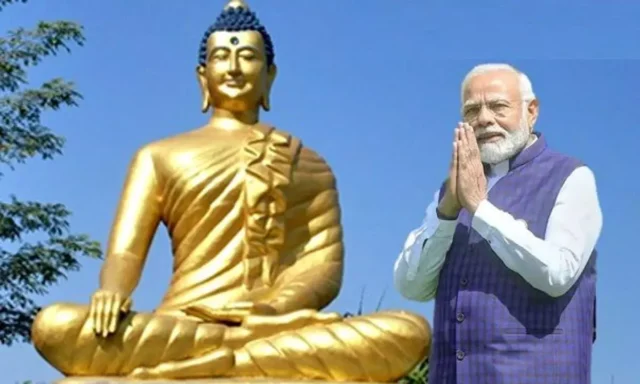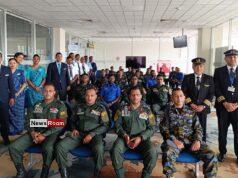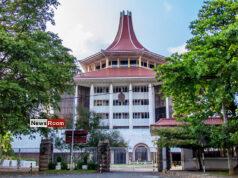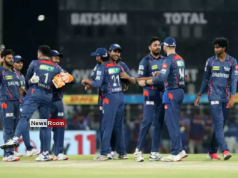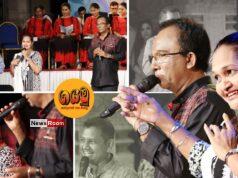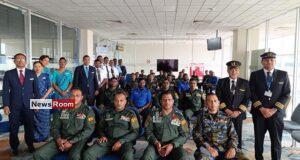By Portia Conrad – Head of international Division, International Buddhist confederation
As Prime Minister Narendra Modi arrived in Sri Lanka on a three-day visit with a grand welcome ceremony, it is worth reflecting on the Buddhist connection between the two countries through the speeches made by the Prime Minister on this ancient legacy.
Prime Minister Modi’s speeches on Buddhism have played a pivotal role in strengthening Indo-Sri Lankan cultural and spiritual ties. By consistently emphasising the shared Buddhist heritage between India and Sri Lanka, he has projected India as not just a regional partner, but as a custodian of a spiritual legacy deeply revered in Sri Lanka. His addresses often highlight the message of peace, compassion, and universal brotherhood — values deeply rooted in Buddhism — which resonate strongly with the Sri Lankan public. This consistent messaging has helped reinforce people-to-people connections and promote cultural diplomacy.
On Abhidhamma Day, 20 October 2021, Prime Minister Modi reaffirmed the deep-rooted Buddhist connection between India and Sri Lanka, tracing it back to the ancient journey of Emperor Ashoka’s children, Mahendra and Sanghamitra, who brought the Buddha’s teachings to the island nation. He highlighted how Sri Lanka’s early acceptance of Buddhism was a powerful testament to the universal relevance of the Buddha’s message. He described Abhidhamma Day as not only a spiritual occasion but also a moment to rekindle and strengthen the centuries-old cultural and spiritual ties between the two countries.
On this occasion, the Kushinagar–Colombo flight was inaugurated, and the sacred Kapilavastu Buddha relics from the Rajaguru Sri Subhuthi Maha Vihara of Wasakaduwa were displayed in several Indian cities. Notably, a small portion of these relics was subsequently offered to His Holiness the Dalai Lama by Ven. Wasakaduwe Mahanayaka Thero during a visit to McLeod Ganj in April 2024 with much fanfare.
Prime Minister Modi has also emphasised Buddhism as a vital link between India and Sri Lanka, using it as a foundation to strengthen bilateral ties. He has highlighted on numerous occasions Buddhism’s role in shaping Asia’s future, declaring that “without Buddha, this century cannot be Asia’s century.” This statement, made during the International Buddha Purnima Divas organised by the International Buddhist Confederation in New Delhi on 4 May 2015, reflected his vision of leveraging shared spiritual heritage to unite Asian nations. The Modi government has increasingly integrated Buddhist diplomacy into its foreign policy, recognising its power to build cultural and spiritual bridges.
The announcement on 5 April by PM Modi about the holy relics from Devni Mori in Gujarat to be displayed in Sri Lanka added a special significance to this Buddhist connection. The Devni Mori relics were discovered in a casket dating back to the 3rd–4th century AD near Shamalaji, Gujarat. They were found in a copper bowl, wrapped in a silk cloth, and kept inside a casket. The Brahmi inscription outside the casket read: “Abode of the bodily relics of Lord Buddha.”
Prime Minister Modi’s personal engagement further underscores his commitment to this cause. He makes it a point to visit Buddhist temples during his international travels, such as Toji and Kinkakuji in Japan. Notably, during his 2015 visit to Sri Lanka, he addressed Buddhist monks at Colombo’s Mahabodhi Temple and paid homage to the sacred Mahabodhi tree in Anuradhapura.
Anuradhapura is a hub of Theravada Buddhism and was also a centre of intellectual exchange among prominent Buddhist philosophers such as Buddhaghosa, who wrote commentaries on the Tipitaka (Buddhist scriptures) and other texts of Theravada Buddhism. It is also symbolic for having preserved many lost Buddhist texts of India, which contain valuable details about early southern India and the dynasties of northern, central, and eastern India. PM Modi is expected to visit Anuradhapura during this visit as well.
These symbolic acts resonate deeply with Sri Lanka’s Buddhist majority, reinforcing India’s role as the birthplace of Buddhism and as a respectful partner in preserving its legacy. Through such gestures, Prime Minister Modi has effectively strengthened Buddhist cultural ties and deepened the spiritual connection between India and Buddhist nations, including Sri Lanka.
The International Buddhist Confederation (IBC) has been facilitating this ancient linkage between the two countries by regularly organising visits by senior Sangha members from Sri Lanka to sacred Buddhist sites in India. Likewise, the Secretary-General of the IBC, Shartse Khensur Jangchup Choeden Rinpoche, attended the foundation stone-laying ceremony of the Ashokan Pillar at the sacred Rajaguru Srisubuthi Wasakaduwa Mahaviharaya in Sri Lanka’s Western Province in January 2024. To intensify and build on this engagement, the IBC has nominated Dr. Damenda Porage, a senior Sri Lankan scholar and specialist in Theravada and Mahayana Buddhism, as a Deputy Secretary-General.
Prime Minister Modi has effectively used Buddhism as a bridge for cultural diplomacy, creating a positive perception of India in Buddhist nations. His emphasis on shared values and sacred history has bolstered India’s image as a trustworthy and culturally connected neighbour. The successful relic movement and the warm reception it received showcased how spiritual gestures can transcend political boundaries, fostering goodwill and mutual respect between nations.

